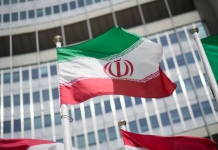MOSCOW: US financial sanctions on Russia, which as of Monday prohibited US financial institutions from buying new bonds directly from Russia’s central bank, may further accelerate a global de-dollarization push, as more countries seek to avert risks from an increasingly weaponized dollar, Chinese analysts said. As financial sanctions have gradually become a tool for the US to crack down on other countries, and the US has continuously transferred its inflation risks to other countries amid the COVID-19 pandemic, more countries may seek to reduce their reliance on dollar assets, analysts added.
The latest sanctions were announced by US President Joe Biden on April 15 as a retaliatory measure against Russia over so-called election interference and other accusations, according to a report from the Wall Street Journal. The order bans US financial institutions from buying new bonds directly from Russia’s central bank, finance ministry or massive sovereign-wealth fund after June 14, and is intended to constrain one of Russia’s main means of funding its government, said the report. Any financial sanctions on Russia will only be limited, because Russia’s financial sector has a low degree of internationalization, its holdings of US Treasury bonds are small, and its main area of financing is in Europe, Dong Dengxin, director of the Finance and Securities Institute at the Wuhan University of Science and Technology, told the Global Times on Tuesday.
The sanctions are more of a symbolic move that won’t have much real impact on Russia’s economy, but they are also a retrogressive move that’s in stark contrast to free market principles Washington has advocated, Dong said.
Russian Finance Minister Anton Siluanov previously said that the new US sanctions will mean missed opportunities for US lenders, adding that he expected demand for Russia’s state debt to remain high.
Foreign holdings of the government bonds of the Russian Federation total about ($37.56 million), accounting for about 14 percent of the total amount outstanding, but these bonds are usually traded in the secondary market and they are not subject to the US sanctions, according to media reports. – Agencies



